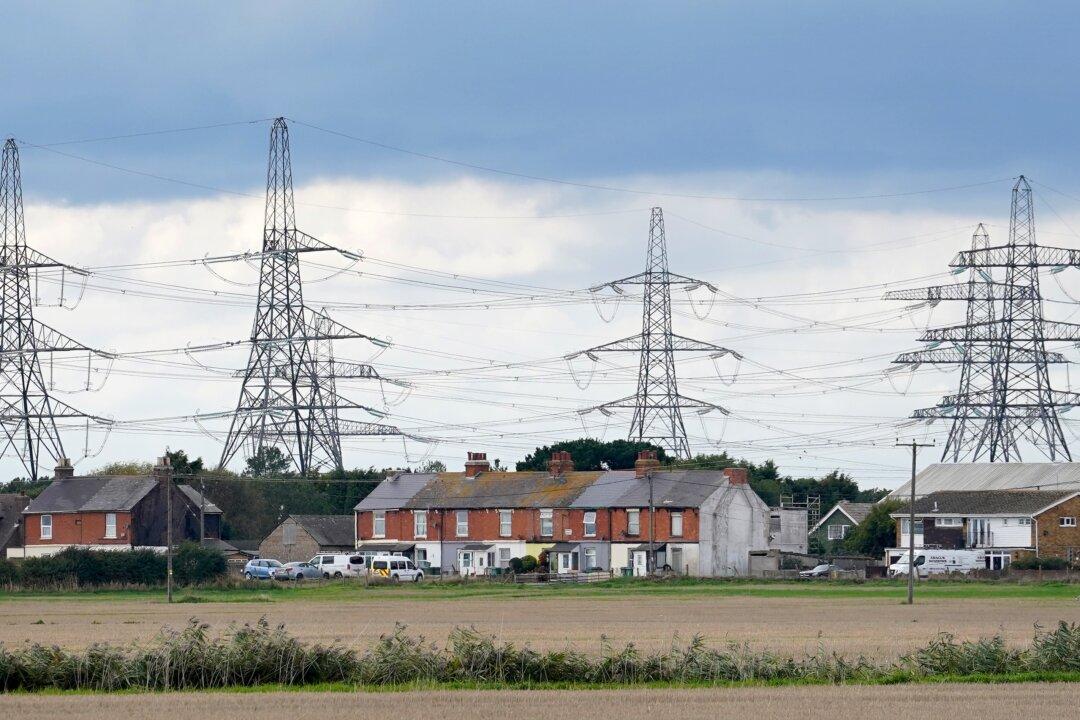National Grid wants to raise £7 billion from investors as part of a huge net zero spending programe over the next five years to decarbonise the electricity network.
On Friday, the multinational electricity and gas utility company, which runs much of Britain’s electricity grid, announced plans to invest about £60 billion in networks before the end of the decade, with more than £30 billion of that going to England, Scotland, and Wales.
It announced that it will raise £7 billion by offering new shares to its current shareholders.
However, analysts said that “in substance” this means each job will cost £545,000 and that the vast majority of this expense is to help the grid “cope with unreliable renewables.”
80 Percent Nuclear Energy
Utility industry analyst Steve Loftus told The Epoch Times by email that such a huge amount of funds could have been spent on “reliable nuclear energy.”“It’s good to see the NGESO raising equity through the sale of shares towards its investment in the grid, but it will be the UK bill payer that will bear the brunt of the cost, and at a time when bills are already sky high,” he said.
He said that while the grid does need upgrading, in some areas the vast majority of this expense is to help the grid “cope with unreliable renewables.”
“The grid wasn’t designed to move electricity from so many diffuse locations or from the far north to the south. This is an additional cost to the consumer due to net zero that they could well do without,” said Mr. Loftus.
Grid Provision
Andy Mayer, energy analyst at the free market think tank Institute of Economic Affairs, told The Epoch Times by email that there was a “significant downside risk attached to preempting investment in a net zero grid based on government targets to double capacity, and related targets for individual power generation technologies.”Mr. Mayer said that if the next government does nothing to unblock planning regulations or streamline the consents obstructing wind, solar, and nuclear power delivery, the additional grid capacity “will be under-utilised, or itself delayed.”
State-Regulated Monopoly
He noted that the National Grid operates as a state-regulated monopoly, running most of the country’s power grids.“None of this would matter if the National Grid were a genuinely private company risking only their investors’ capital on an ambitious growth plan. But they’re a state-regulated monopoly who can put the cost of their mistakes on our bills,” he said.
He said that network costs on a typical direct debit dual-fuel bill have risen 53 percent in the last five years and will rise further to pay for these plans.
“In the near-term this means bills are more expensive than they could have been, and longer-term will mean either much higher bills or taxes,” he added.
He said that there were “hidden costs” even though both the government and National Grid claimed that the billions of pounds will create 55,000 jobs.
Energy Transition
A National Grid spokeswoman told The Epoch Times by email: “Our network transmission costs only account for around £20 of the household bill each year. The £60 billion investment we have announced is recoverable over 40 years, so any increase in network costs added to individual bills would be very marginal.”She said that the “investment will also bring down bills in the long-term as the infrastructure we are building will connect more, cheaper, renewable energy to the grid, as well increase energy security and decarbonise the economy.
“The marginal bill increase will be offset by new jobs and economic growth with our investment supporting 55,000 more UK jobs by the end of the decade,” she added.
The Epoch Times contacted the Department for Energy Security and Net Zero for comment.







